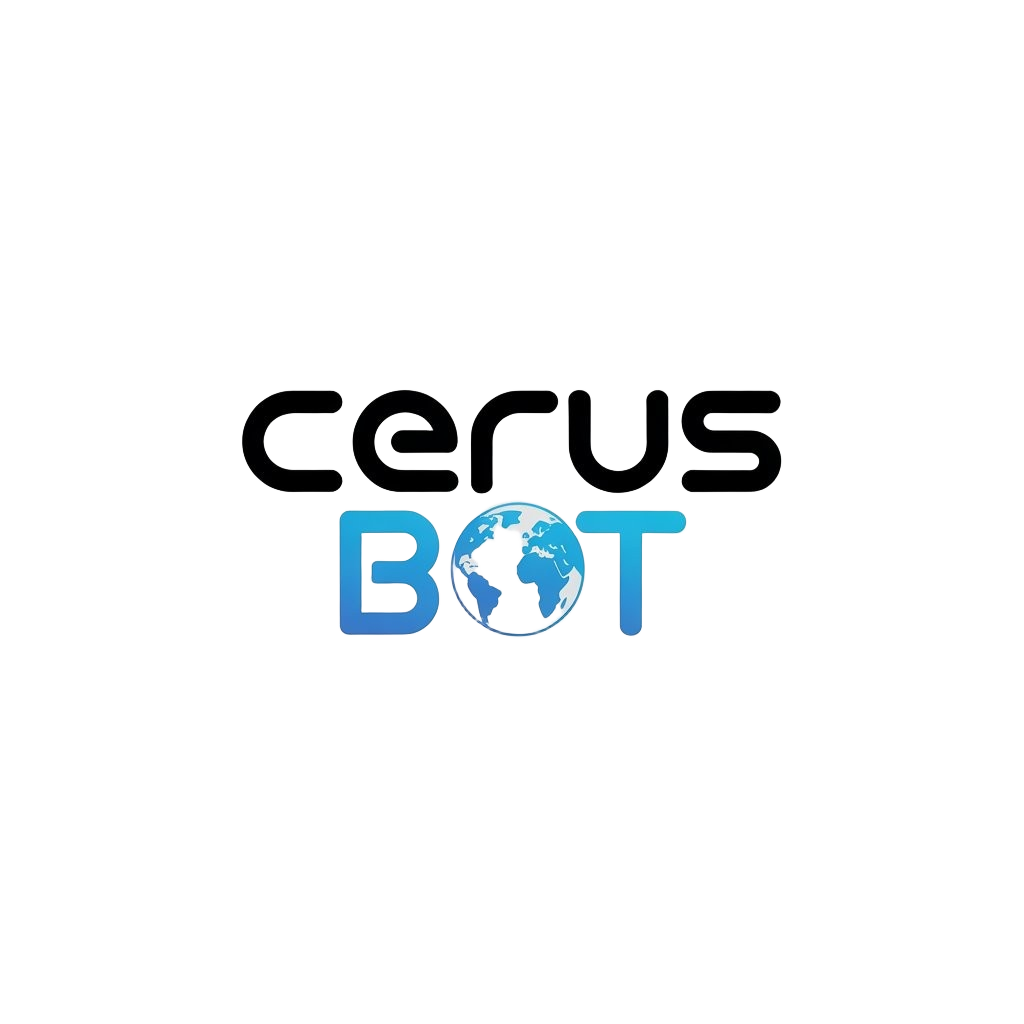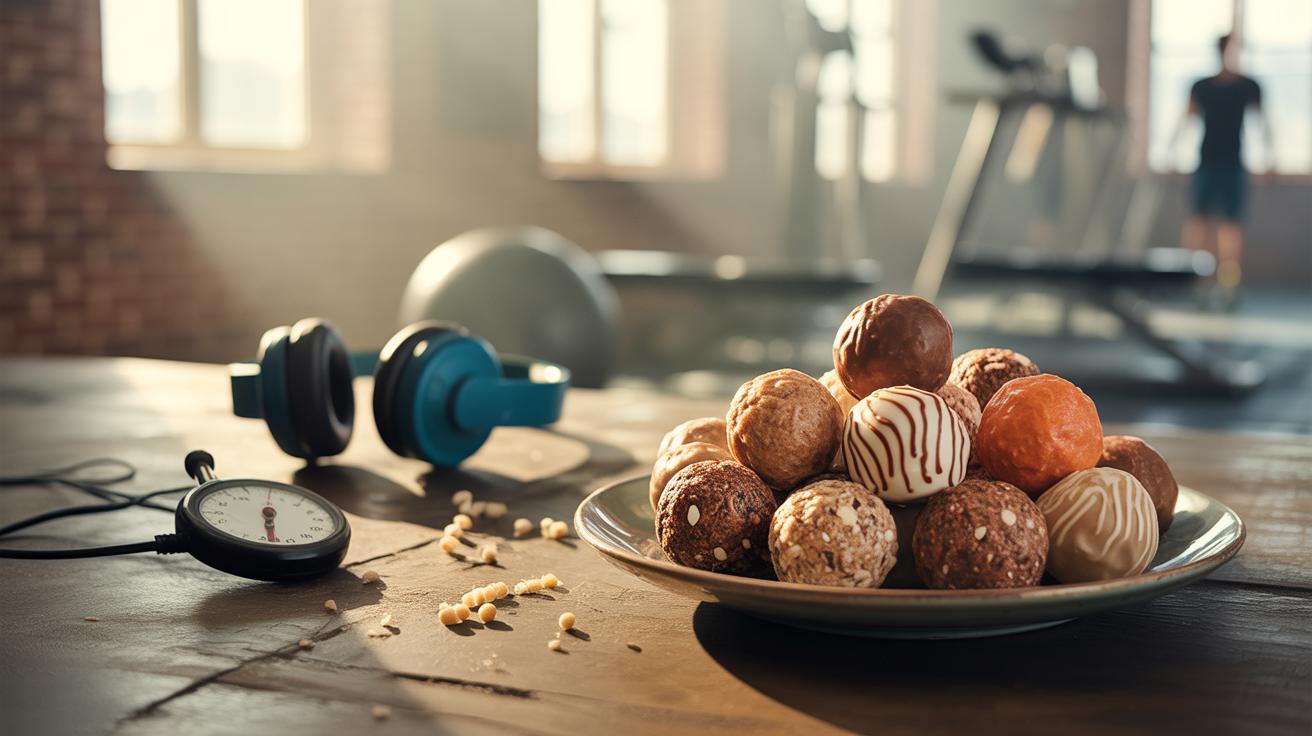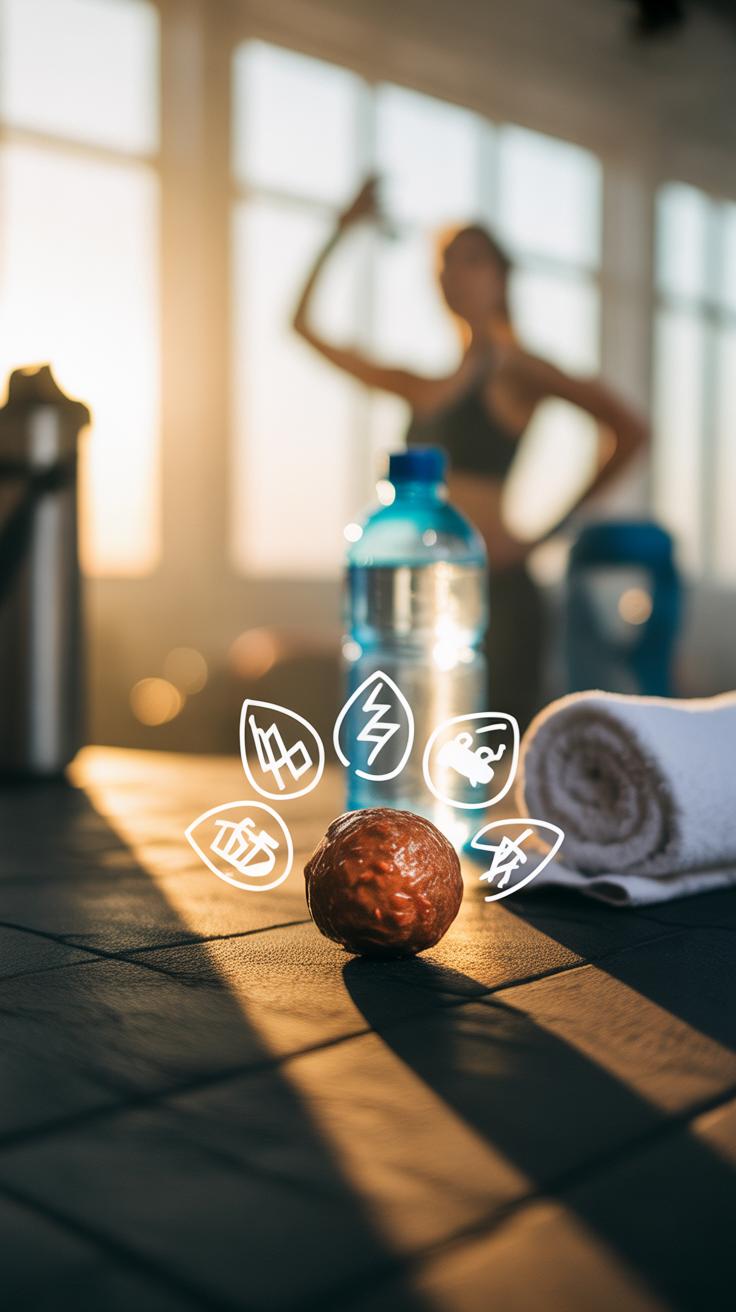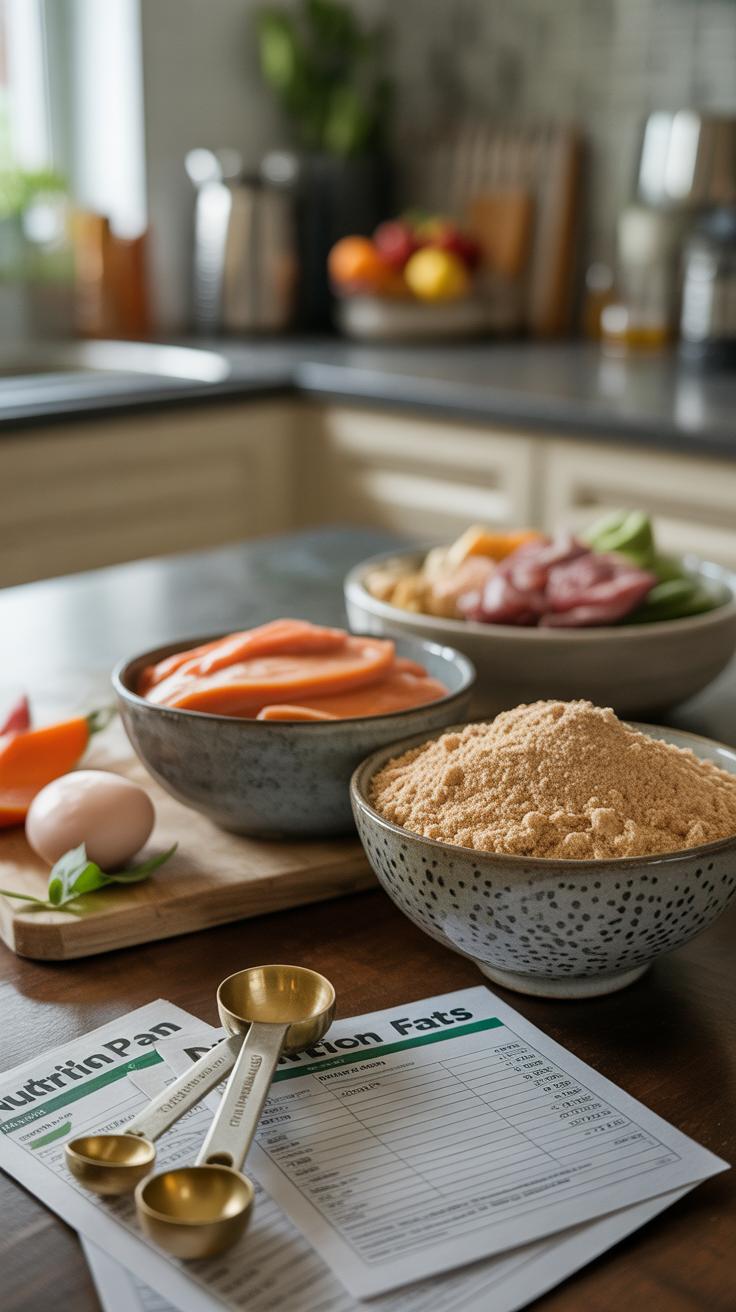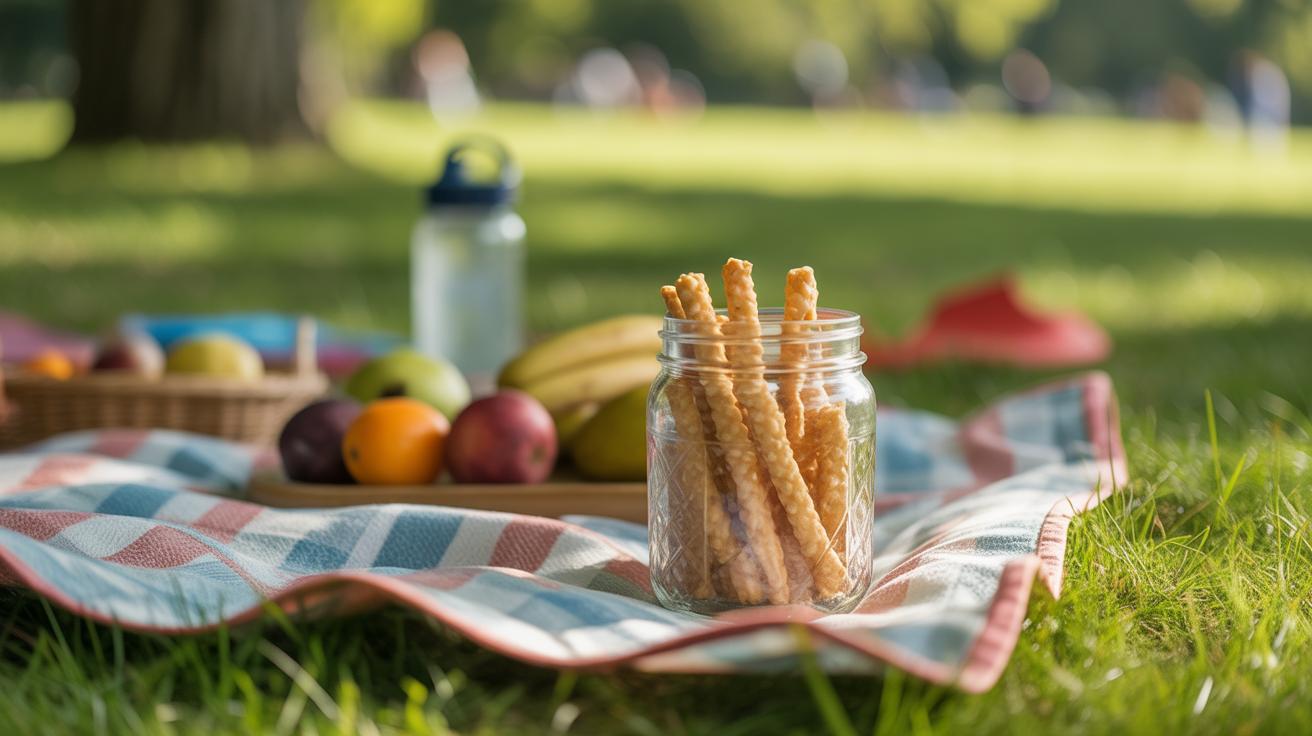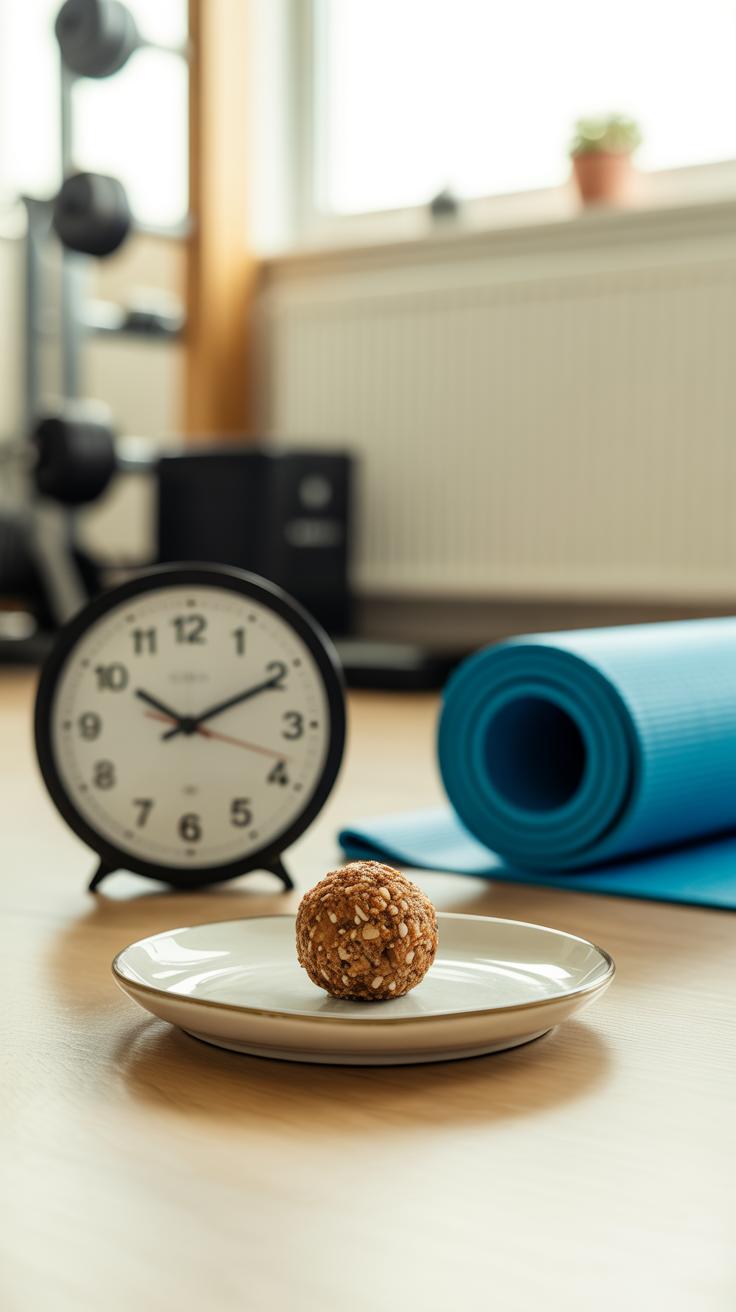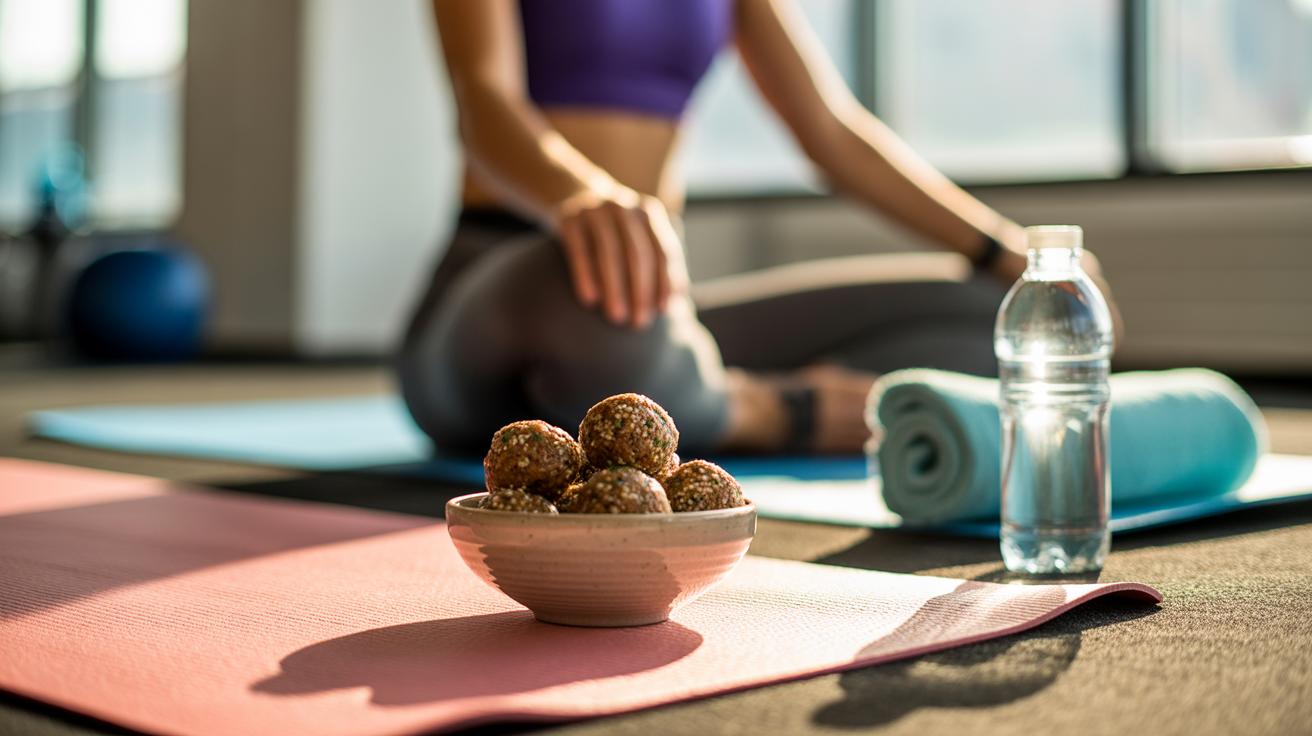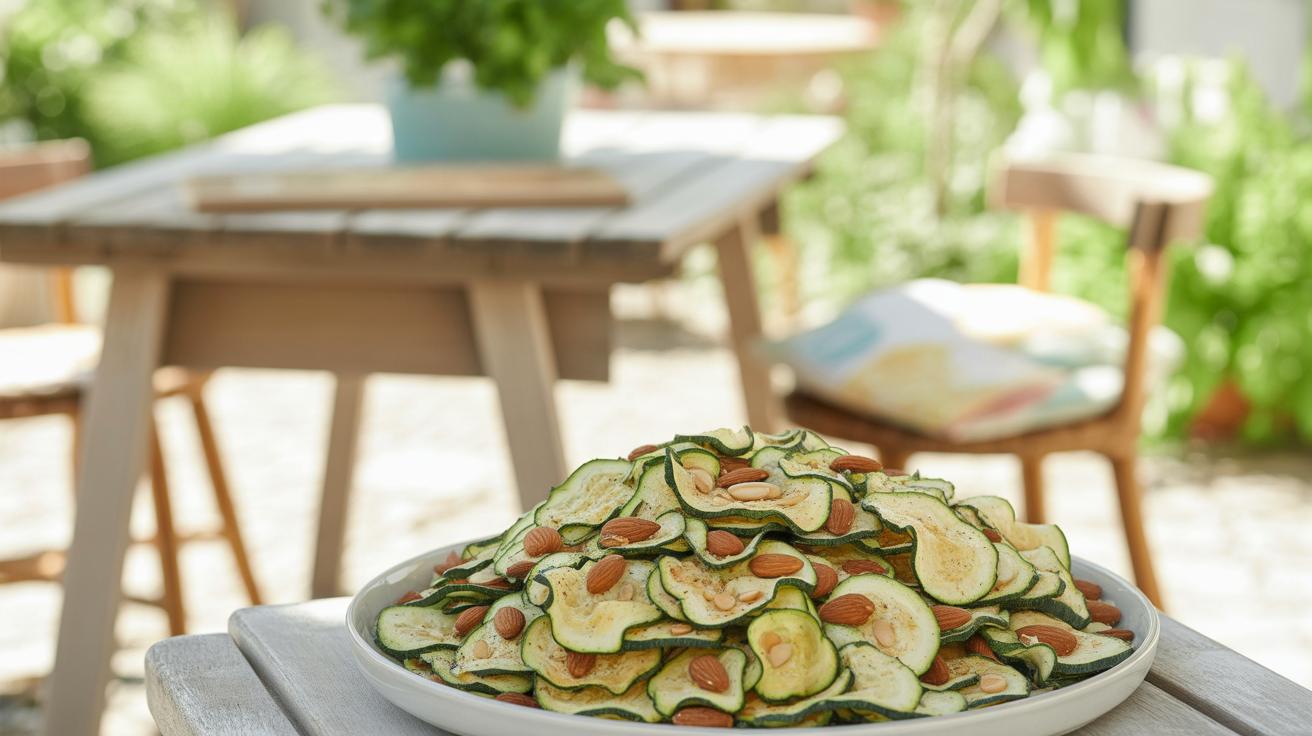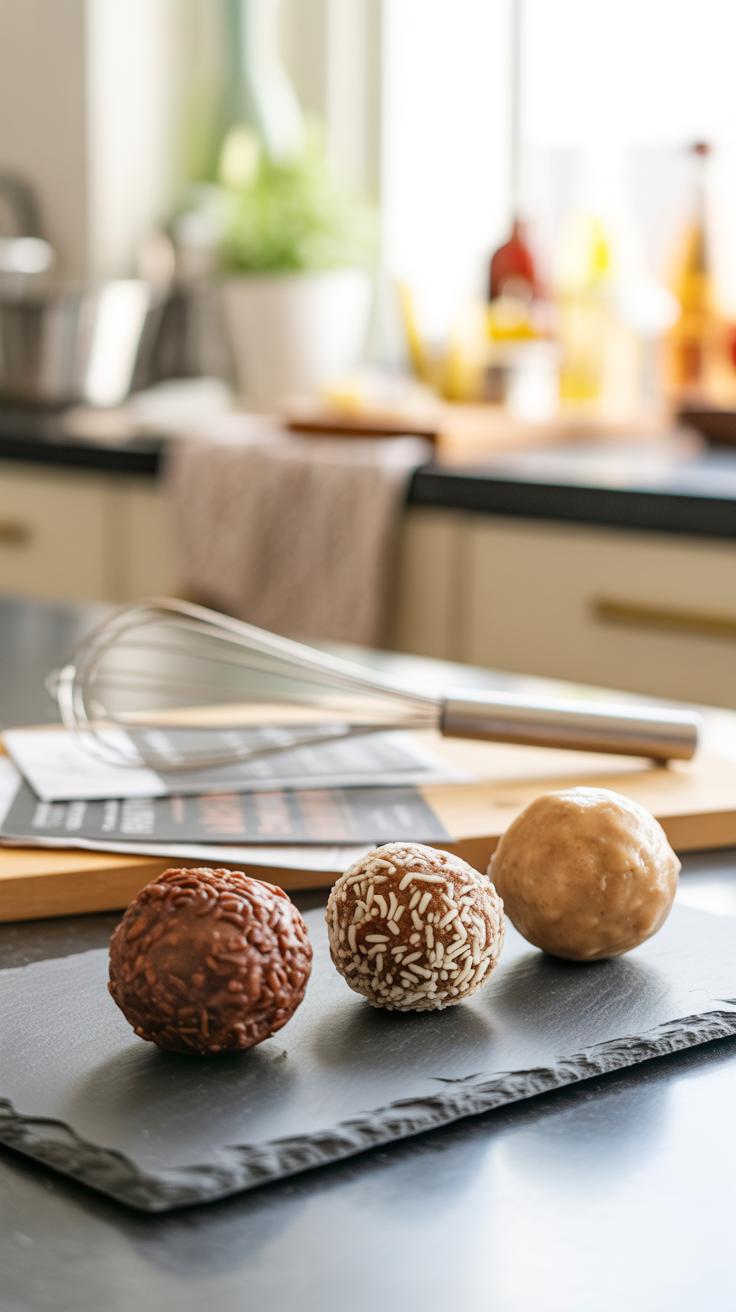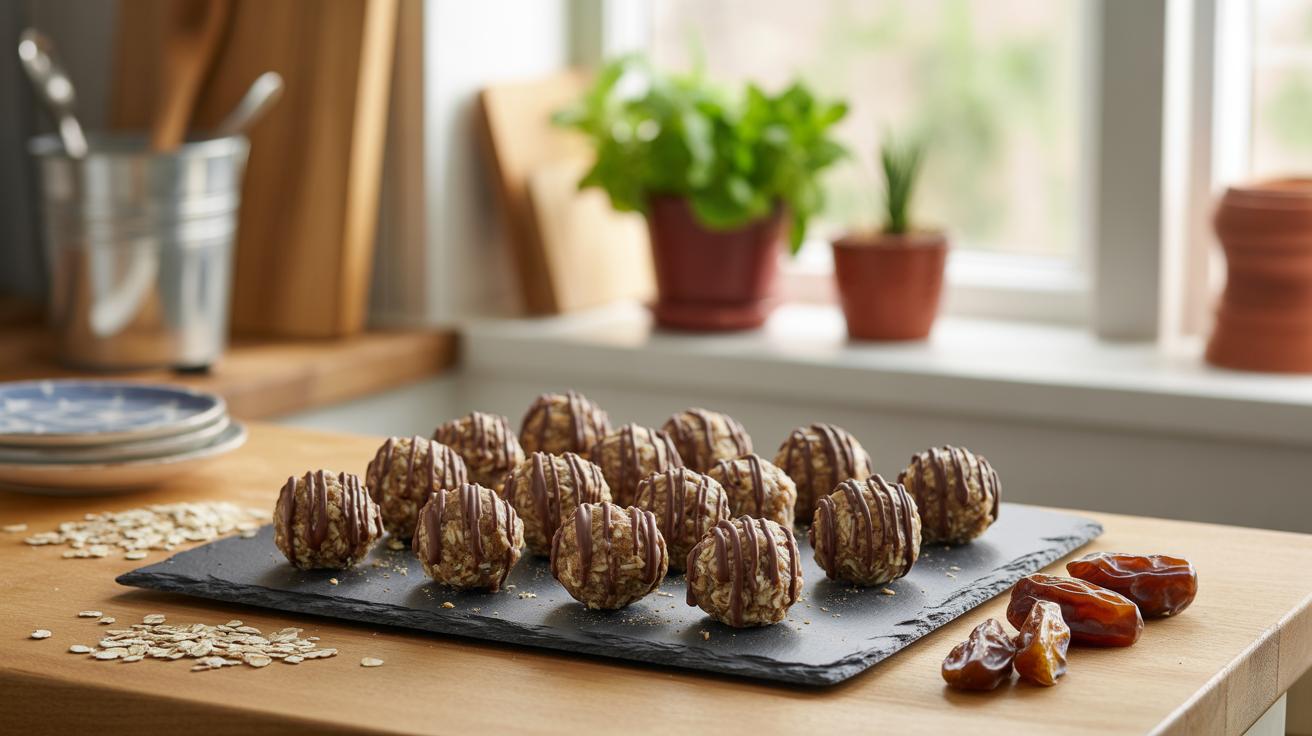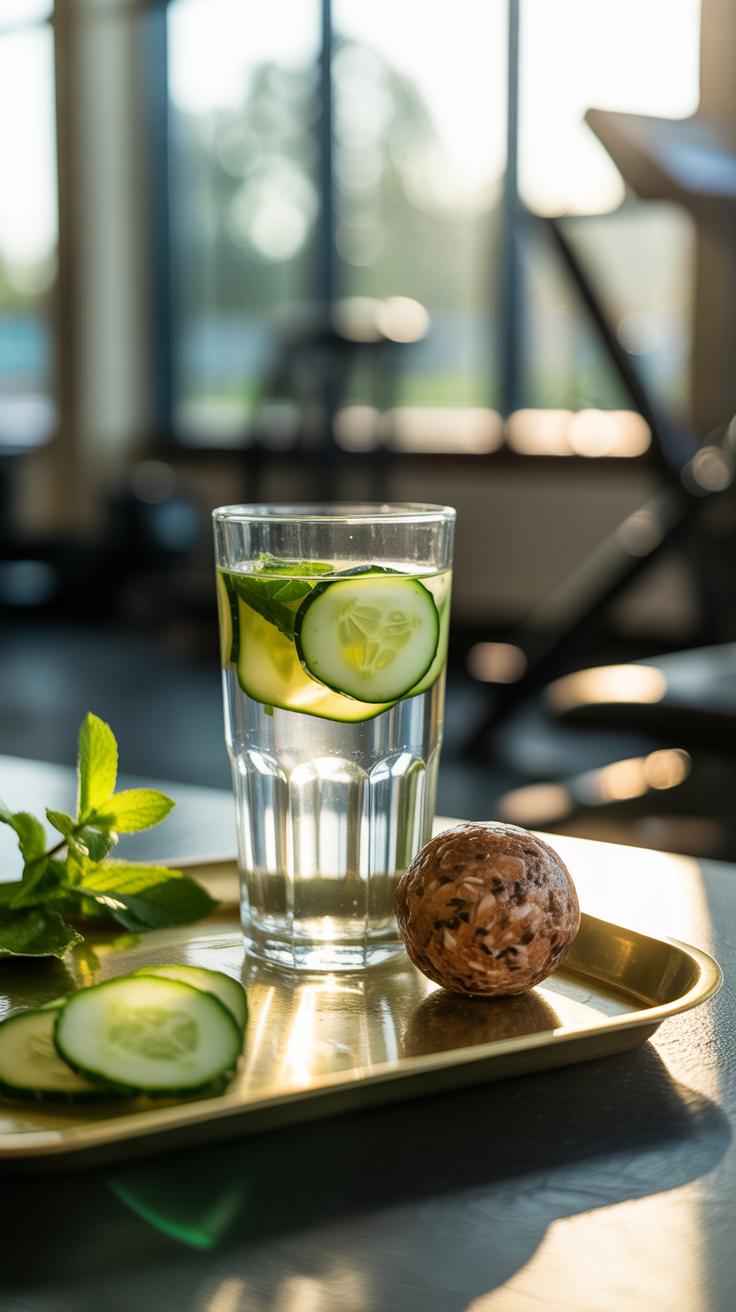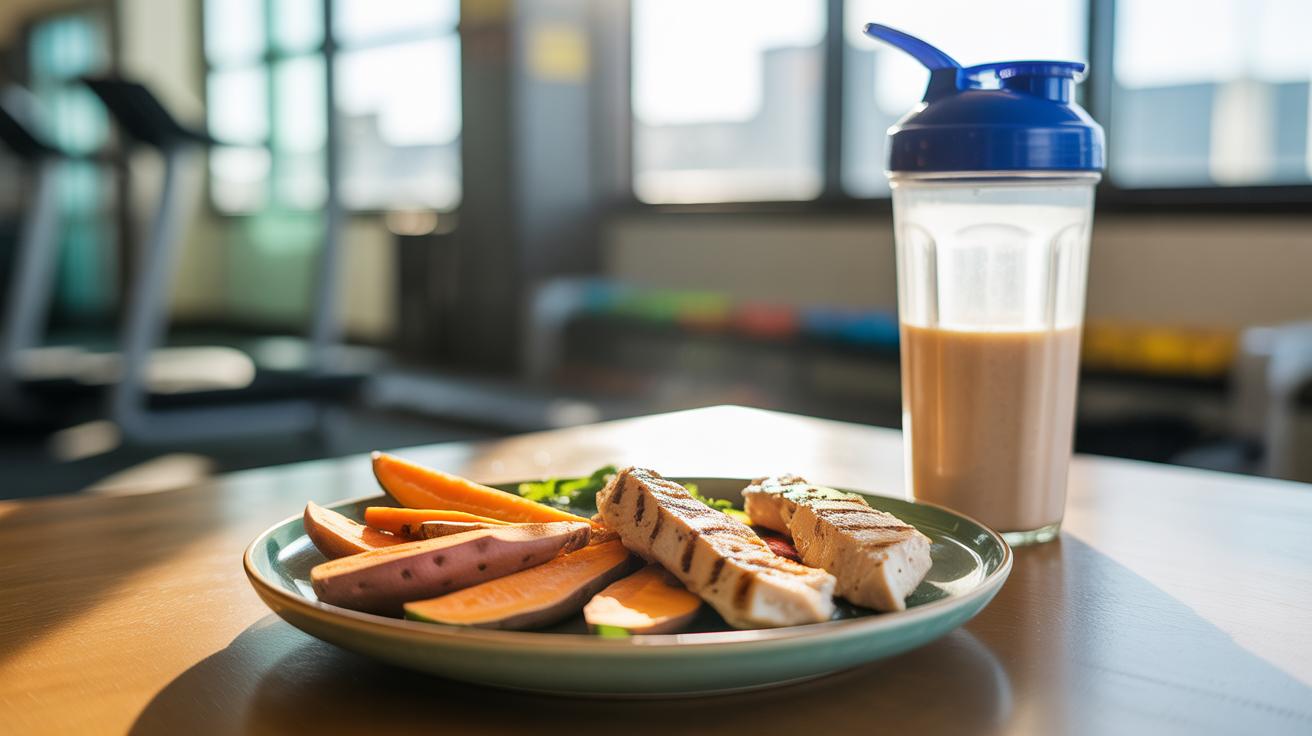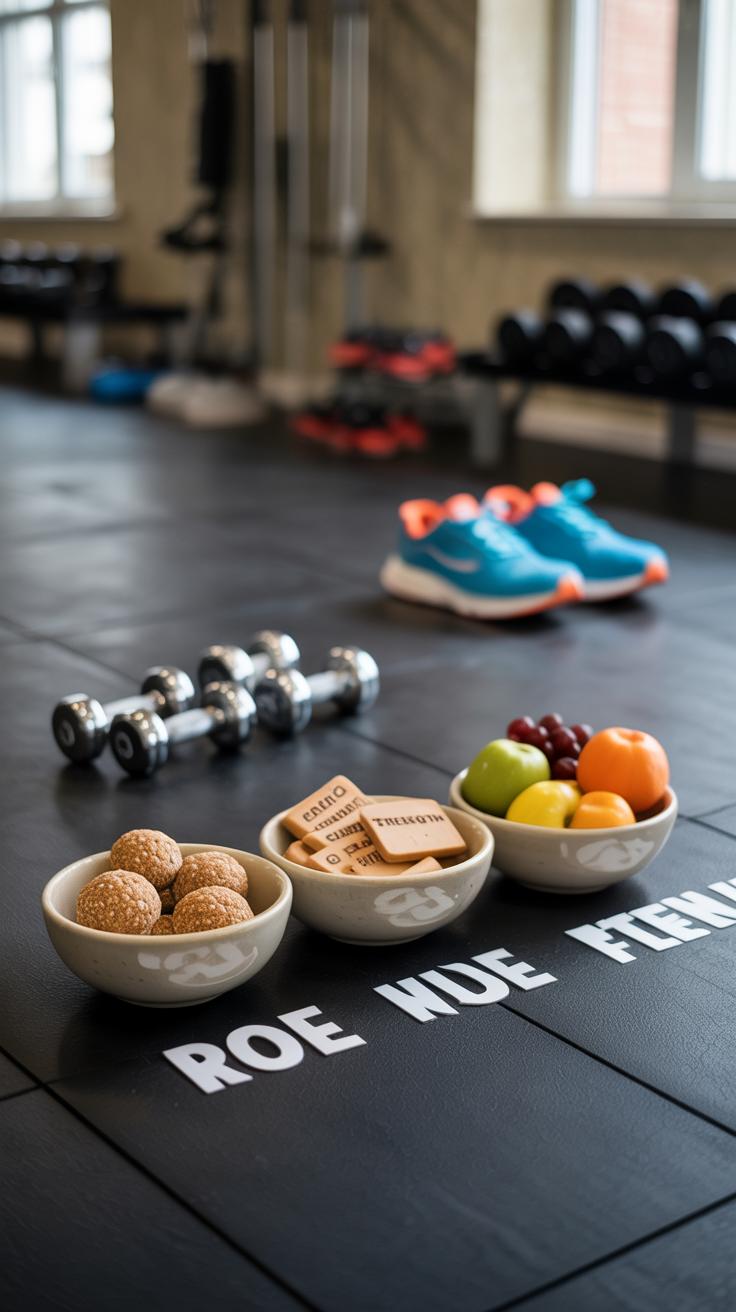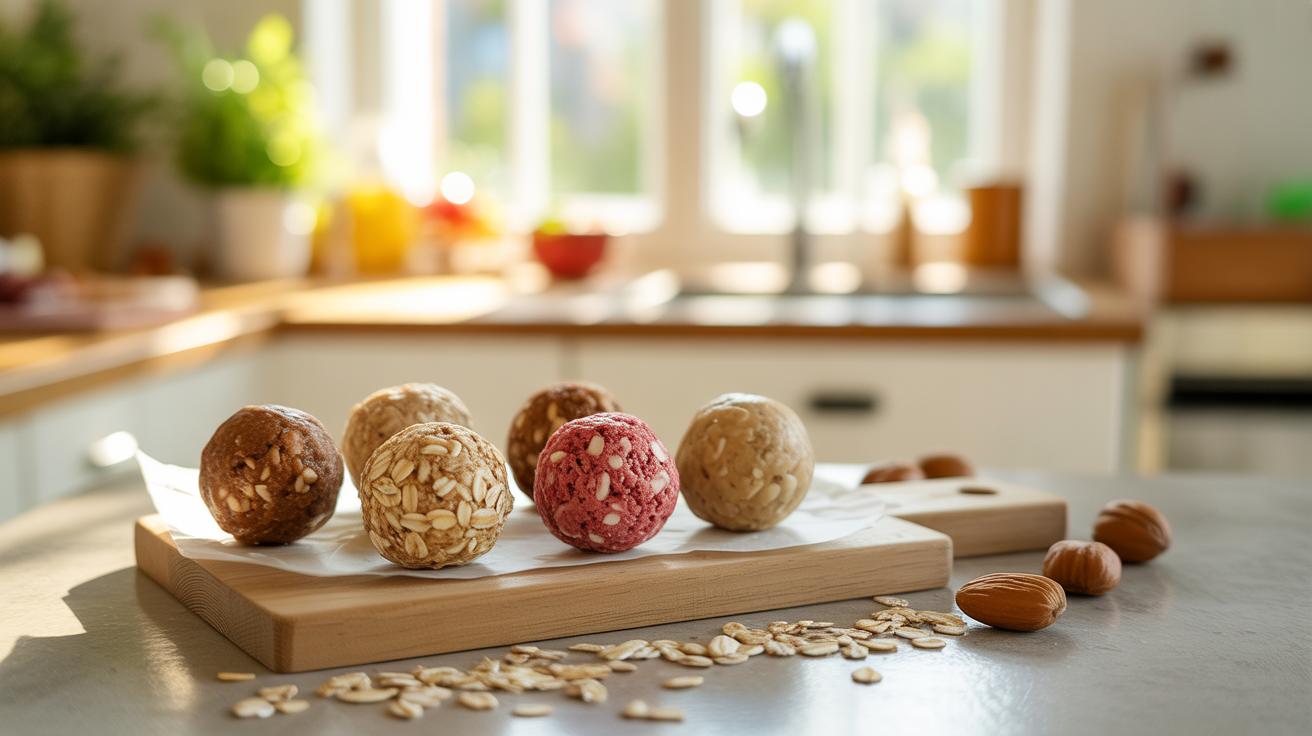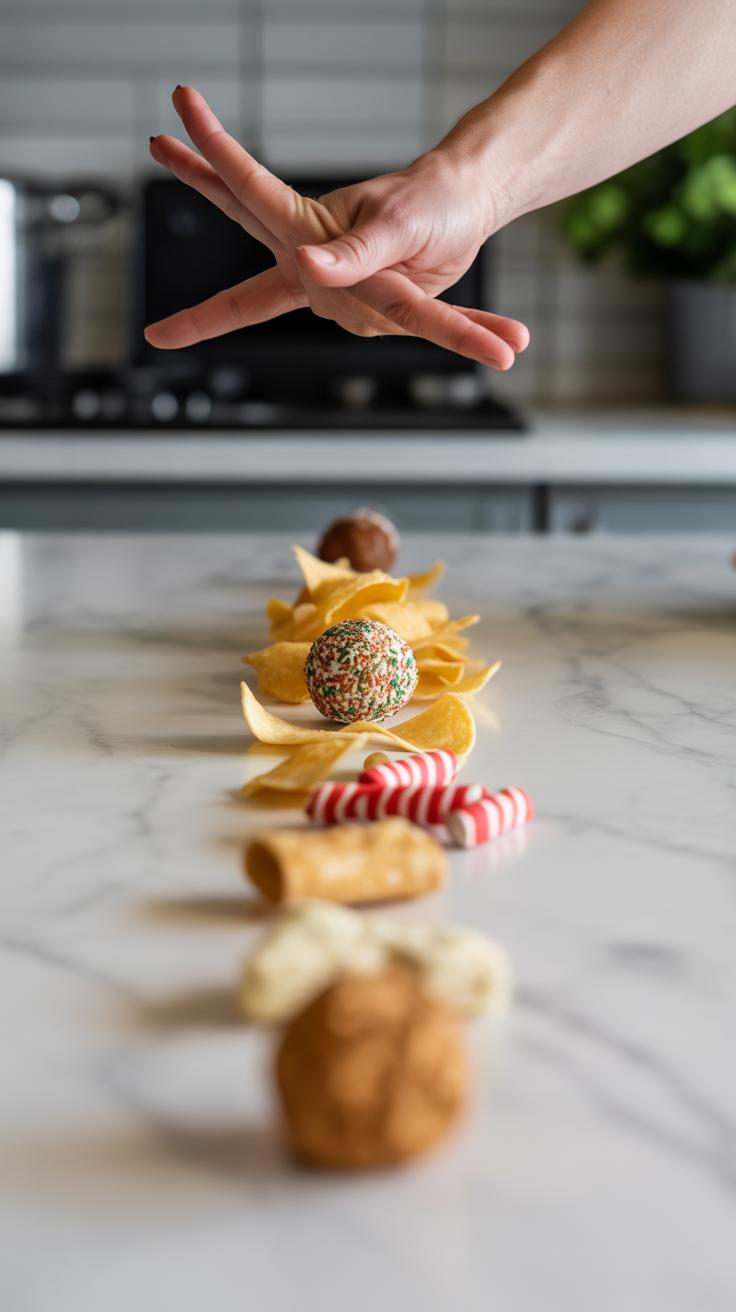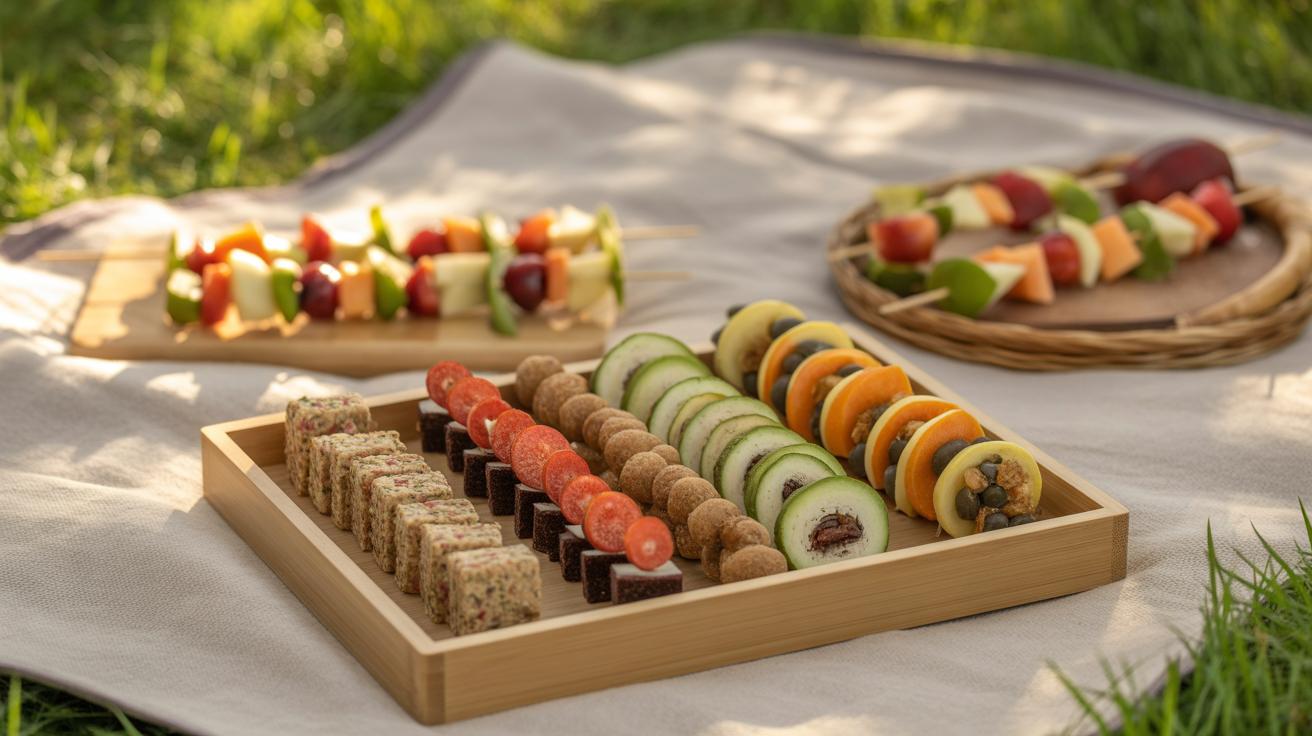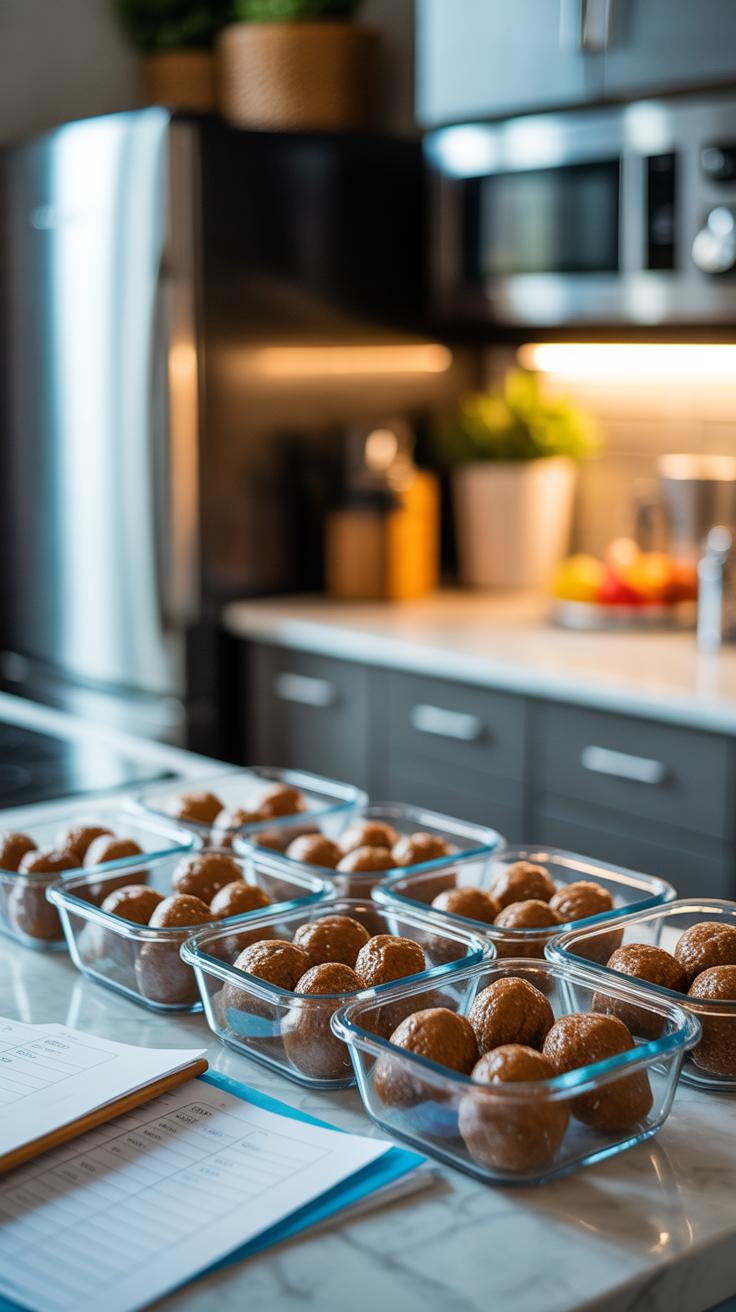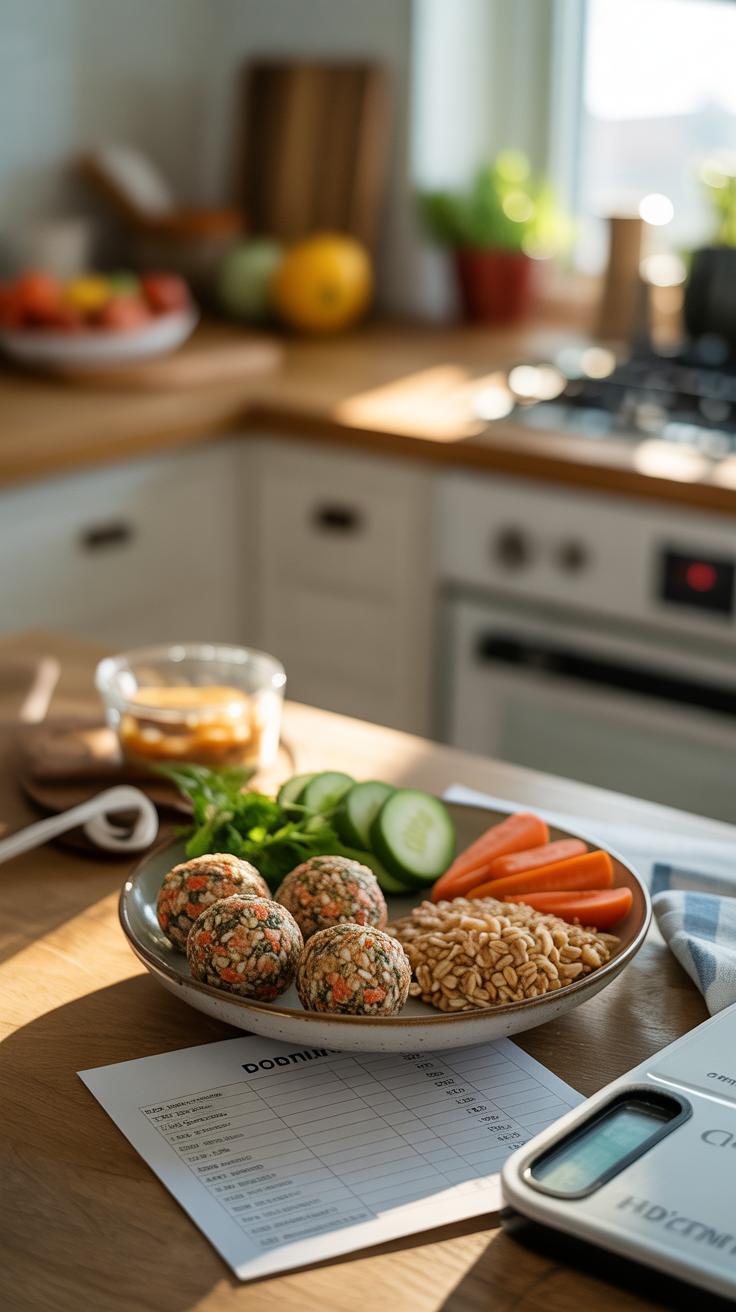Introduction
Eating the right snack before a workout can help you perform better and feel good during your exercise. For busy people, finding time to eat something healthy before working out can be hard. That’s why quick and easy snack ideas are important.
This article will explore simple snack options that you can prepare in minutes. We will also look at why these snacks work well and how they help your body get ready for exercise.
Understanding The Role Of Preworkout Snacks
You might wonder why a small snack before exercise can make a difference. It’s not just about filling your stomach. Preworkout snacks play a specific role—they prepare your body to perform better by providing fuel that’s easy to digest and quick to use. Think of it this way: your muscles crave energy, especially when you’re about to start moving.
When you eat before working out, your body gets a modest supply of glucose, which powers your cells right away. It’s like giving your muscles a heads-up that activity is coming, so they’re not caught off guard by sudden demand. That little bit of fuel can reduce fatigue, keeping you going longer and sometimes even making your session feel less tough.
But energy is only part of the story. Some nutrients in your snack also support muscle function. For instance, certain amino acids help muscles contract effectively, while electrolytes can keep you from cramping. It’s a balance—too little, and you lag; too much, and you might feel sluggish or uncomfortable.
Have you ever started a workout feeling good but then hit a wall quickly? Sometimes that’s exactly because your body didn’t have a bit of pre-exercise fuel. Maybe next time you try a quick snack, you’ll notice a difference—starting stronger, feeling more alert, and maybe even pushing through fatigue a little longer.
Choosing The Right Nutrients For Preworkout Snacks
The Role Of Carbohydrates
Carbohydrates are the body’s preferred source of energy, especially when you’re getting ready to exercise. Eating carbs before a workout tops up your glycogen stores, which basically means your muscles have fuel ready to burn. Without enough carbs, you might feel sluggish or tire out faster, even during something that usually feels easy.
Think about it: a quick banana or a slice of whole-grain toast can give you glucose that travels fast into your bloodstream and muscles. That boost helps power your workout from the first minute. But not all carbs act the same; simple carbs deliver quick shots of energy, while complex carbs release it slowly. Depending on your workout’s intensity and how much time you have before starting, you might lean more toward one or the other.
Including Protein And Fats
Protein before a workout isn’t just for post-exercise muscle repair. Having some protein in your snack can help support muscle health during exercise and may reduce muscle breakdown. Plus, protein adds a bit of staying power to your snack so you don’t crash too early. I’ve noticed that when I skip protein, I can’t keep up as long as usual in strength sessions.
Fats are a slower energy source, and while they don’t fuel quick bursts well, a small amount in your preworkout snack can help maintain energy over longer sessions or moderate workouts. But too much fat beforehand might slow digestion and leave you feeling heavy. It’s a bit of a balancing act—just enough to keep you steady, but not so much it feels like a burden mid-exercise.
So, your ideal snack likely blends these nutrients—carbs priming your muscles, protein protecting them, and fats offering slow-burning energy. How do you usually feel when you try to skip one of these? It’s interesting how our bodies react differently, and sometimes the “perfect” mix changes day to day.
Timing Your Preworkout Snack
Snack Timing For Short Workouts
If your workout only lasts about 30 to 45 minutes, when you eat can make a real difference. Eating too close to exercise might feel heavy or sluggish, but waiting too long could leave you low on energy. I usually recommend having a small snack around 30 to 60 minutes before you start moving.
This gives your body just enough time to begin breaking down carbs for quick fuel. Think of a piece of fruit or a small yogurt. These digest fairly fast without weighing you down. If you try to eat too early, say more than two hours before, your energy might dip during the workout, leaving you feeling less than ready.
But then again, some people feel fine working out on an empty stomach for short sessions, especially if it’s early morning or a light activity like yoga or walking. So, maybe it depends a bit on your own rhythm and how intense your session is.
Snack Timing For Longer Workouts
Longer or more intense workouts usually need a different approach. When you’re planning to move hard for more than an hour, timing becomes trickier. Eating a more substantial snack about 60 to 90 minutes before your workout allows your body to absorb and store energy properly. Often, this snack includes a mix of carbs and some protein to avoid blood sugar spikes.
Sometimes, if the workout is really long or intense, having a small snack closer to the start, like 15 to 20 minutes before, can help keep your energy steady. But this depends on how your digestion reacts—some folks find eating too late can cause discomfort while exercising.
Plus, if your schedule is tight and you can’t eat earlier, a very light snack right before might still give you a bit of a boost. The key question is what works for you without causing any stomach issues, and that often requires a little trial and error.
Quick And Easy Snack Ideas
Portable Snacks On The Go
When you’re rushing out the door and pressed for time, having snacks that you can grab and eat without making a mess can be a game changer. Think small, simple, and compact. A banana or an apple fits perfectly in your bag and provides quick carbs. Trail mix, especially one with nuts and dried fruit, offers a combo of fats and sugars that release energy steadily. Energy bars can work too, but watch for those loaded with too much fiber or additives—it might slow you down rather than speed you up.
You might find it tricky to eat much if you’re squeezing something in between meetings or errands. That’s why things like yogurt pouches or even a handful of roasted chickpeas could work well—they’re tidy, easy to portion, and give you a little protein kick before a workout.
Simple Home-Made Snacks
Sometimes, homemade options can feel more satisfying and you know exactly what’s in them. A quick peanut butter and banana sandwich on whole grain bread can hit the spot with its blend of carbs, fats, and protein. Or blend a smoothie with frozen berries, a splash of milk, and a spoonful of oats – it’s fast, filling, and you don’t have to fuss over containers.
Hard-boiled eggs also make for a straightforward snack if you prepare them in advance. They pack protein and are easy to eat without any prep just before your session. Even a small bowl of cottage cheese with some honey and a few nuts is something you can whip up in minutes and enjoy steady energy without feeling weighed down.
What kinds of snacks do you find yourself leaning toward when you’re in a hurry? There’s no perfect choice, really—it’s about what feels right for your body and schedule.
Hydration Alongside Your Preworkout Snack
Why Hydration Matters
Drinking water before you work out isn’t just something your gym buddy repeats—it really does make a difference. When you’re well-hydrated, your muscles contract better, your joints feel less stiff, and your body cools down more efficiently. You might not always notice it, but being slightly dehydrated can slow you down, leave you feeling tired sooner, or even cause headaches mid-session.
Think about those times you felt drained halfway through a workout. Could it be that you skipped drinking enough water? Probably. Your body needs fluids to carry nutrients from your snack into your cells, fuel your muscles, and maintain energy levels. So hydration is not just about quenching thirst—it can directly impact how well you perform and recover.
Combining Fluids And Food
Pairing your preworkout snack with the right amount of water is a bit like tuning an engine. Too little, and you risk cramps or fatigue. Too much just before exercising might make you feel bloated or uncomfortable. Finding that sweet spot is personal, but here are some practical tips:
- Drink around 8 to 12 ounces of water about 30 minutes before your workout starts.
- If your snack contains salty or dry components, you might need a bit more water to balance it out.
- Listen to your body—thirst isn’t always obvious, and sometimes you might need a sip even if you don’t feel parched.
I’ve noticed that when I combine a small fruit and nut snack with a glass of water, I feel sharper and less weighed down. It seems both fuel and hydration team up to prevent that sluggish feeling. So don’t just eat something quick—take a moment to hydrate too. Your workout will probably thank you for it.
Adjusting Snacks Based On Workout Type
Snacks For Cardio Workouts
If you’re gearing up for a cardio session, your snack needs to fuel endurance and sustain energy. Since cardio often demands prolonged effort, focus on carbs that break down quickly and provide a steady energy release.
Think of snacks like:
- A banana or an apple with a small spoon of honey
- Oatmeal topped with a few raisins
- Rice cakes with a thin layer of peanut butter
These choices are usually easy to digest but pack enough simple and complex carbs to keep you going. Maybe you’ve tried something heavier and noticed sluggishness — lighter snacks often feel better for running or cycling. Yet, sometimes that quick sugar hit isn’t quite enough, and you wonder if adding a bit of protein helps, but often for cardio, too much protein just sits heavy.
Snacks For Strength Training
Strength workouts call for a bit more nuance. You’re not just burning calories; you’re breaking down muscle fibers that need repair. So, protein becomes more important alongside carbs that’ll fuel short bursts of energy.
Good snacks might be:
- Greek yogurt with sliced berries
- A small turkey sandwich on whole-grain bread
- Cottage cheese paired with pineapple chunks
Protein here aids in muscle recovery, but timing and quantity matter — too much before lifting might cause discomfort. Some people swear by a quick boiled egg or nut butter to get that protein without feeling weighed down. But it’s tricky; your own digestion and workout intensity really guide what works. I think starting with a balanced snack and tweaking it over time helps find your sweet spot.
Snacks To Avoid Before Your Workout
Choosing the wrong snack before you exercise can really throw off your performance. It’s not just about what you should eat, but also what to avoid. Some foods that might seem tempting actually do more harm than good when it comes to getting through a workout comfortably.
Heavy Or Greasy Foods
Eating greasy or heavy meals before working out is often a recipe for discomfort. Foods like fried snacks, fast food, or anything drenched in oil sit in your stomach longer. This can lead to nausea, cramping, or just feeling sluggish. Imagine trying to push through a run or lift weights while your body is still busy digesting a burger and fries—hardly enjoyable. Your blood flow diverts to your digestive system, leaving less energy for your muscles. If you’ve ever felt that bloated or sluggish sensation mid-exercise, greasy food might have been the culprit.
It’s funny how sometimes people think a big meal will fuel them better but end up feeling weighed down instead. Your body prefers something lighter and easier to break down, especially when you’ll be moving soon afterward. Maybe you’ve experienced that too—like, you try a heavy snack once and decide not to repeat that mistake.
High Sugar Snacks
Candy bars, sugary drinks, or pastries might give you a quick energy rush, but that boost is usually short-lived and followed by a crash. That sudden dip in blood sugar can leave you feeling tired and unfocused, just when you need to push yourself the most. It’s a bit ironic—what seems like a good idea at first ends up sapping your strength later.
Plus, too much sugar can upset your stomach or cause a jittery feeling. Some people assume sugar is the best quick fuel, but it often backfires. Think about times you reached for a soda or candy right before a workout and then felt wiped out halfway through. Wouldn’t you rather avoid that? It’s better to stick with snacks that provide sustained energy rather than just a quick spike.
Preparing Snacks In Advance
When your schedule leaves little room for meal prep, having ready-to-go snacks can make or break your workout routine. Making snacks ahead isn’t just about saving time—it also helps you avoid grabbing something last minute that might not fuel you properly. You might think prepping snacks in bulk feels like extra work, but once you find a rhythm, it’s surprisingly straightforward.
Batch Preparing Snacks
Try setting aside a couple of hours one day a week to prepare multiple snack portions. For example, you could portion nuts, chop veggies, or make energy balls in trays so each piece is already sized for one snack. Think about easy recipes that store well and don’t lose texture quickly. I often make oat and nut bars, wrapping each in parchment paper so they stay fresh without fuss.
Preparing this way means you don’t have to worry about portion control or making decisions when you’re hungry or rushed. Instead, just grab and go. It’s a small thing, but it saves mental energy, which is sometimes harder to come by than time.
Storage Tips To Keep Snacks Fresh
Keeping your pre-made snacks in good shape isn’t always simple. Some snacks dry out if left in the fridge too long, while others can get soggy or lose their crunch. Airtight containers are your best friend, especially ones that stack neatly in the fridge or pantry.
Freezing is also an option, though not every snack handles it well. For instance, homemade granola bars freeze nicely and thaw quickly, but fruit-based snacks can become mushy. Labeling containers with dates helps, too, because it’s easy to forget when you made something. I’ve, on occasion, found myself eating stale snacks simply because I didn’t keep track.
Maybe you don’t mind a slightly softer texture on some days, but if you’re picky like me, these small storage strategies will keep snack time enjoyable and not a disappointment.
Tracking What Works For You
When it comes to preworkout snacks, one size rarely fits all. What fires up one person’s workout might leave another feeling sluggish or even bloated. So, paying attention to how your body reacts after different snacks is actually more useful than blindly following popular opinions. That’s where tracking comes in.
Noticing Energy Levels
Try to really tune into how you feel during your workout after eating a particular snack. Do you feel energized ten minutes in? Or does your energy drop halfway through? Maybe certain snacks give you a steady boost, while others spike your energy only to make you crash soon after. It’s okay if this feels a bit trial-and-error at first. Some people notice a clear pattern quickly, others need a few weeks of observations.
Think about factors like endurance, focus, or strength. For example, if you eat a banana before gym and find your focus fades halfway, but a small handful of nuts keeps you alert, that’s something worth remembering—even jotting down.
Keeping A Snack Journal
Writing things down might seem tedious, but a simple snack journal can be a game-changer. You don’t have to be overly detailed; just note what you ate, how long before your workout, and how you felt during and after exercising. Later, you can review these quick notes to detect which snacks consistently work best.
Here’s an idea of how to keep it simple:
- Date and time of snack
- Type and amount of snack
- Time gap between snack and workout
- Energy level during workout (rate 1-5, for example)
- Any other notes – mood, hunger, hydration
Over time, you might realize that certain combinations help or hinder your performance. So, why track? Because it helps you optimize without guessing, saving you from wasted efforts and unwanted fatigue.
Balancing Preworkout Snacks With Your Diet
It’s easy to think that adding a preworkout snack means eating more overall, but that’s not necessarily true. The key is fitting these snacks into your existing meal plan without tipping the calorie scale too far. Maybe you swap out part of your breakfast or reduce some carbs at lunch to accommodate a quick energy boost before exercise. Small shifts can make a difference.
Choosing snacks that match your calorie goals is tricky. You want something light enough to avoid feeling heavy mid-workout, yet enough to fuel you. Think 150 to 250 calories, depending on your needs. Fruit with a bit of nut butter, a small yogurt, or a few whole-grain crackers can hit that range. It’s about what works for you, not a one-size-fits-all rule.
Maintaining nutrient balance across your day is another piece of the puzzle. If your preworkout snack is carb-focused, try to get protein and healthy fats in your other meals. Or if you grab a protein-rich snack, keep the rest of your day lighter on protein. Sometimes, though, the lines blur—sometimes you just want a quick fix, and that’s okay.
Have you noticed any snacks that leave you unexpectedly full or sluggish? That’s a signal. Your preworkout snack should energize without overeating. It’s this kind of tuning-in to your body that really helps keep things balanced.
Conclusions
Picking the right snack before you exercise can make a big difference. A good snack gives you energy and stops hunger from slowing you down. Choosing quick and healthy snacks helps you stay on track even when you have little time.
Try different snacks to see what works best for your body. Remember, eating before your workout is part of taking care of yourself and reaching your fitness goals.
